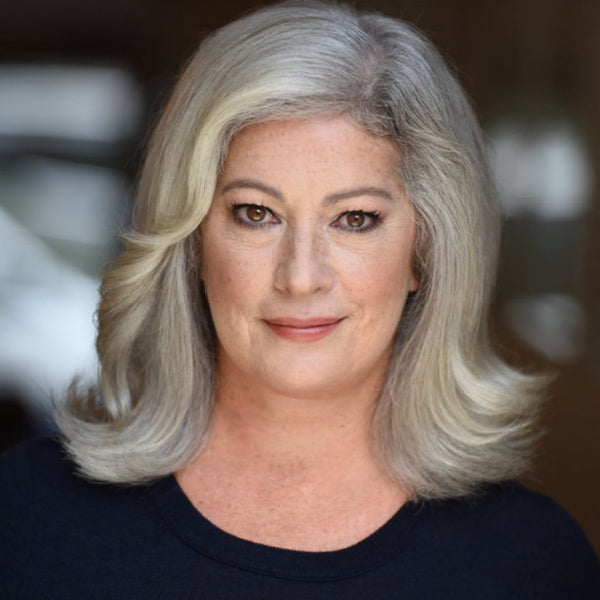Michelle Smith, financial expert and certified divorce financial analyst
Women need to get rid of much of society’s, and their own, reasons for not owning fully their own finances. Harsh, but too true. Instead of taking charge of their financial power as soon as they become adults, too many women still wait until one of the three D’s — Death, Disease, or Divorce — happens before taking ownership of their own finances.
More women than ever are running for, and winning, higher office, there are more female CEOs in the Fortune 500 than ever before, women now outnumber men in medical and law schools. But, while clearly confident when it comes to shattering glass ceilings, many don’t feel empowered or knowledgeable enough to make their own financial decisions — or they choose to let their spouses wear the financial pants. A recent U.S. Bank Women and Wealth study showed although women control $20 trillion in wealth, they are less engaged with personal finance than men, they start saving later than men, even though they associate money with security (46% of women versus 36% of men) and are concerned about retirement (49% of women versus 32% of men). And nearly half of the women surveyed associated negative words, like “fear” and “anxiety” with money, as opposed to less than a third of men.
Even more distressingly, “since the federal government began calculating the poverty rate in the 1960s, women have consistently experienced higher levels of poverty compared to men, with women of color, LGBTQ women, and single women struggling most acutely.” Moreover, “the Official Poverty Measure shows high levels of poverty for unmarried women. For example, 26.1% of women who never married live in poverty compared to just 4.9% of married women.”
Controlling one’s own financial future is essential; women, on average, live to be 81 years old, making planning ahead more critical for women than men, who have a life expectancy of 76. Women also will control the lion’s share of the nation’s wealth soon, with projections showing that women will inherit 70% of future wealth over the next two generations. By 2030, projections show that between inheritances and their own earnings, women will control two-thirds of the country’s wealth.
Michelle Smith, a financial expert and certified divorce financial analyst, sees a crisis brewing, but believes it is eminently avoidable. We sat down with Smith and one of her recent Wife2CFO course alumna, Christine Sobol, to discuss money, women, and our future. Please read on for their insights.
NEW YORK MAKERS: How did you become interested in financial literacy, and why do you think there’s such a gap between women and men?
MICHELLE SMITH: I saw what my mother went through. She’s been divorced twice. During her second divorce, she realized she had to take control not just of her finances, but her life, so she actually got a job in finance and blazed a successful career. I saw that, and I followed in her footsteps. I’ve worked as a financial advisor for 30 years, and I’ve been through two divorces myself. I have seen it all in terms of what women think they know about money, and their attitude toward it. I think a lot of the issues stem from the fact that we’re raised in a patriarchal society. There are subtle messages everywhere. Wall Street and financial institutions are still very male-dominated, and there’s an insidery-ness to a lot of financial talk that can feel intimidating. I have worked with so many incredibly capable, smart, accomplished women who are terrified of money.
CHRISTINE SOBOL: I am one of them. I have a masters degree in international business, and I worked as a management consultant for years, but when I got married and had children, we decided I would be a stay-at-home mother to focus on the family. I didn't pay the bills. When we separated, I had a real mountain to climb to get up to speed on all aspects of our finances. It was doable, and incredibly challenging during a stressful time. At times, I felt frozen. I realized I needed to change my mindset and take action to manage my own future.
NYM: How does your financial educational process work, and how has it evolved with COVID?
MS: I work with all women at every stage of their journey, but many of my clients are divorced, and that is my area of specialty, simply because a divorce is often the time that women realize the degree of their anxiety around money. They realize their future is actually at stake. I have been working one-on-one with women for years, and this is where my service is very different from what’s out there. I’m not selling a product. I’m providing an education, not advice tied to a bank or line of investments. My entire goal is to empower women so that they feel they understand the range of investment vehicles and opportunities out there, before they approach one of these advisors. I want them to understand the market, know the jargon and be able to confidently weigh the pros and cons. My intense one-on-one mentorship runs about $25,000 with a very high-end, high-touch, white glove service. I work with my clients for nine or 10 months, and ensure that they are ready to fly. It has been highly successful, but obviously not for everyone. I wanted to develop a way to help more women, in addition to just those who could afford that kind of investment.
NYM: What did you envision?
MS: I envisioned creating an empowering community of women who were learning together, who realized they weren’t alone. I was set to launch a broad educational initiative in April of 2020, but then of course the world turned upside down. Suddenly, a live event with 100 people slated to attend had to be canceled. For a few weeks I just brainstormed, and did a lot of deep thinking. I realized that I could reach even more women across the entire country if I began providing classes online. I designed an eight-week course by taking my 30 years of experience and crafting a curriculum that I knew would meet women exactly where they needed to be met, one financial concept and strategy at a time. I suddenly realized that this course was my answer to the question I have received my entire career, “Can you recommend a book or a course I can take to learn about money?” Now, my answer is a resounding YES! After a 25-year career in advertising and marketing, my brother joined me in the business creating and executing our digital and social strategy so we could hit the ground running.
NYM: That’s how Christine got involved?
CS: Yes. I'd heard about Michelle's course. I thought getting female-focused financial education during my transition would be enriching. It turned out to be an incredibly empowering decision. Once a week, Michelle releases an hour-long video on a particular financial topic (from budgets to investments, to risk tolerance, retirement, tracking, good practices to protect against identity theft, estate planning, putting together your team, and so much more). The class is recorded and available to watch later. She also has office hours that were great for asking specific questions and interacting with other women in the community. Michelle listens and gets it, and made me want to prioritize shoring up my finances, too. The course provides a fresh lens to look at the why behind our financial decisions and understanding tradeoffs, as well as the impact of action and inaction! The discussion around tools and technology for financial organization were relevant to me. Now that I've implemented a system that's working, it's saving me so much time and giving me the data to make more strategic decisions. Through talking this out and taking action while I had support during the course, it removed an emotional block with money that had been holding me back. My overall confidence has really increased, which bleeds over into other areas of life too. The course has had a profoundly positive impact in a way I hadn't anticipated.
NYM: Has the course changed?
MS: Definitely. My goal is to help and reach as many women as possible, so I take their feedback personally. Of the eight-week course, the first week entails just one-on-one onboarding so I can understand each person’s particular needs. Then the last week is also a one-on-one session to answer lingering questions and advise women on next steps.
Here is an introductory session to give a better sense of how my course is structured, and I can be reached at msmith@sourcefa.com if anyone has any questions or would like to follow up.
NYM: What is the cost of this new course?
MS: The 8-week course is $1,999 right now, but the price tag will be rising in the Fall of 2021. We started at this level to gauge the interest and to find out what worked and what doesn’t, but we’ve done several now, and the course and my teaching strategy has been enhanced, including live office hours with me the day following the curriculum sessions. This is where the magic happens as the community of women show up, asking their personal questions, and engaging with and supporting each other. There is now a national audience showing up for this course, and I couldn’t be more thrilled with the response.
Here are some essential steps and free resources Smith recommends for women in any financial situation.
1. Mind Over Money
Identify why you feel financially frozen. Until you name it, you can’t claim it.
2. Budgets can be liberating, not restrictive
Download Mint.com or other popular budgeting apps to help you create awareness and tracking of what goes out each month. You can’t end your war with the word ‘budget’ until you create an intentional plan around spending and tracking your expenses.

3. Break from the Chaos
Not being organized or knowing where to start makes things feel bigger than they are. Who doesn’t feel a sense of accomplishment and relief when you finally clean that closet or organize that junk drawer?
Set up online access for all things with a $ sign in your life. (If you have already tackled this but forgot that pesky username and password required, see below). Not having things at our fingertips when we need them, especially at tax or mortgage refinance time, is a main culprit of financial frustration and procrastination. It also just makes us feel bad. Be sure to create access to your credit cards, insurances, banks, investments, and anything else relevant in your financial life. Never hit ‘Forgot Password’ again by utilizing one of the many password manager apps available. (A bonus is you will immediately elevate your cybersecurity as well).
4. Speaking of credit cards...
Solely relying on your additional card attached to your spouse’s card is unwise. Your own individual FICO score is critical from everything to obtaining a mortgage, leasing a car, and in case of an unanticipated crisis (death of a spouse or divorce), building and maintaining an independent and strong credit score is critical. Secure your own card now while you can check the box that says ‘Married’ and ‘Household Income’. And of course, make timely payments.
Women have incredible spending power, but we’re still lagging decades behind in confidence. It’s time to change that.


Leave a comment